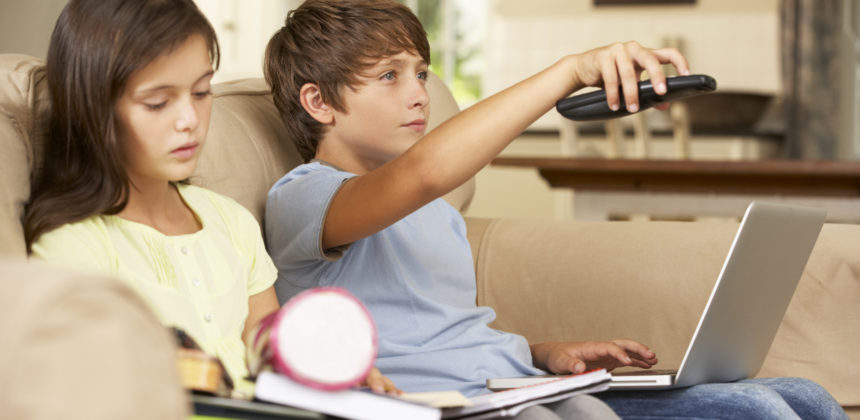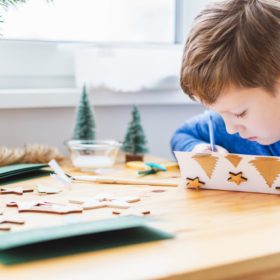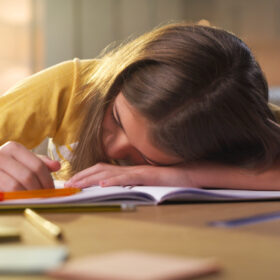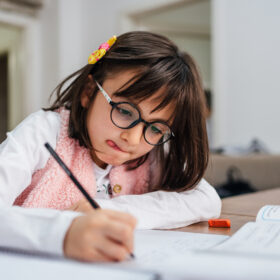Is Multitasking Bad For Students?

In today’s digital world, students have more and more things competing for their attention.
With access to so much entertainment and information, students are often left dividing their focus between more than one task. Whether it’s checking social media while studying or trying to complete multiple homework assignments at once.
Multitasking isn’t new. But, with limited attention spans and more distractions, it’s important to make sure students are still learning effectively.
The Multitasking Problem
Many students multitask while working on schoolwork, whether they’re completing a homework assignment or studying for an upcoming test.
A study by Common Sense Media found that half of teens say they often watch TV or use social media while doing homework, and 60% say they text while doing homework.
Of the students who multitask, two-thirds say they don’t think watching TV, texting, or using social media while doing homework makes any difference in the quality of their schoolwork.
But can students actually multitask effectively? Or can it have a negative impact on students’ learning?
![]() 50% of teens say they often watch TV or use social media while doing homework [Tweet this]
50% of teens say they often watch TV or use social media while doing homework [Tweet this]
Why Multitasking Homework Is Bad For Students
Multitasking homework can have a number of negative effects on learning.
Since students aren’t giving their full attention to their schoolwork, they aren’t as effective at absorbing the information they are studying. And without a solid comprehension of what students are learning, grades can start to slip—up to a half a letter grade.
Longer and more frequent distractions from multitasking can cause school performance to drop even more.
The negative effects of homework multitasking on students can also include:
- A weaker grasp on the information being learned
- Poor retention of the material students have studied
- Higher levels of stress and frustration
- Brain drain from tackling too many tasks at once
- Distractions leading to more time required to complete each task
Read more on multitasking to study and everything homework related.
How Students Can Avoid Homework Multitasking
Help your child break the multitasking habit with these 7 tips:
1. Turn off the cell phone
Remove the distractions of social media and texts so your child can focus on the task at hand. Have your child power down his or her cell phone or leave it in another room until he or she is done with the study session or homework assignment.
2. Put away anything that isn’t needed
Pick one task or assignment to work on and put away any books or materials that aren’t needed. This will help keep your child’s attention focused on one thing at a time rather than jumping back and forth between tasks, so he or she can work more effectively.
3. Don’t study in front of the television
Studying while watching TV can quickly turn into wasted time watching a favourite show rather than actually studying. Schedule a dedicated “homework time” when the TV is turned off and is only turned back on once the night’s assignments are complete.
4. Stick to a study schedule
After school each day, help your child create a homework schedule to complete assignments and plan study time. Block out time for each assignment he or she needs to work on, and stick to using that time for only that specific task. Use different colours for each task, and create a to-do list so your child can check off a task when it is completed.
5. Block distracting websites
If your child doesn’t need a computer to complete his or her assignments, turn it off so he or she isn’t tempted by social media or trying to work on multiple assignments at once. If a computer is needed for an assignment, use a browser extension to block distracting websites and keep the number of open tabs to a minimum.
6. Work in a quiet space
Create a quiet study space where your child can work without distractions. Help your child keep this space clutter-free by only bringing the material needed to work on the task at hand. You can use the study schedule you created to decide what materials and books your child should take to his or her study area.
7. Use time wisely
The hours after school between 3 p.m. and 6 p.m. are usually the most wasted hours of a student’s day. Help your child make the most of this time by encouraging him or her to complete homework as early in the evening as possible. This will help give your child more time for schoolwork, so he or she doesn’t need to multitask to get each assignment done—which means less stress for everyone!
Looking for more homework tips? Check out these tips from the experts on how to study without getting distracted.




